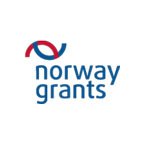Estonian Institute for Open Society Research

PROJECT:
Building a uniform system for the prevention of intimate partner violence (IPV) in Estonia.
Norway financial mechanism 2009-2014, Domestic and Gender Violence.
Project accomplisher: Estonian Institute for Open Society Research www.eaui.ee
Project
partners:
1. Resource Centre on Violence, Traumatic Stress and Suicide Prevention, Western Norway www.rvts.no/vest
2. Police and Border Guard Board www.politsei.ee
3. Estonian Academy of Security Sciences www.sisekaitse.ee
4. Tallinn University, Institute of Social Work www.tlu.ee/et/sotsiaaltoo-instituut
5. University of Tartu, Faculty of Medicine (Department of Family Medicine) www.arpo.ut.ee
6. University of Tartu, Faculty of Law (Institute of Public Law) www.oi.ut.ee/et/kontakt/avaliku-oiguse-instituut
Duration of the project: 28.11.2013 – 31.12.2015
Goals of the project:
1. To demonstrate the financial cost of IPV :
· to employers (absence, sick leave)
· to the medical system (hospital places, emergency and specialised medical aid)
· to the police and judicial system (handling the cases, trials, etc.)
· to the social welfare system (shelters etc.)
The cost of violence or what does IPV cost to the Estonian state?
- Study “Violence and Female Health”
- Calculation of the cost of violence (spending on health care, loss of workdays due to sick leave, disability, expenses on solving IPV cases : the police, social workers, medics (emergency medical services, general practitioners) and other expenses)
2. To integrate all parties dealing with IPV:
1. medical staff;
2. police personnel;
3. social workers;
4. legal specialists
The form of work of the project shall be based on round tables of two types – inter-departmental, involving top specialists of the field; and a supra-departmental group of experts, which would be formed of representatives of all project partners. The materials for the inter-departmental round table (training plans and materials, guidelines etc.) shall be prepared by the organisations representing the field in the project in cooperation with the Estonian Institute for Open Society Research. The reviewed and improved documents in turn shall be referred to the supra-departmental round table, where all project partners shall have the opportunity to make amendments or corrections dependent on the needs of their specific field.
3. To develop an integrated model of action:
1) Harmonisation of and agreeing on terms, so that all specialists of the different fields could understand the use of terms like gender violence, intimate partner violence or domestic violence in exactly the same way.
2) Mapping the initial situation in all aforementioned systems dealing with domestic violence. Organisation of expert interviews among specialists dealing with IPV (medical staff, the police, social workers, lawyers).
3) Development of a specialists’ training system based on common understanding; expert assessment of training programmes and their development or improvement dependent on necessity
4) Development or improvement of training materials for carrying out basic or additional training
5) Expert assessment, updating and, if necessary, writing of professional and operating guidelines, which would allow violence prevention, adequate risk assessment and timely intervention in IPV cases by all institutions according to uniform principles
6) Training of teachers, who hold lectures on gender violence at universities (Academy of Security Sciences, University of Tartu, Tallinn University etc) to specialists of various fields, presentation of new study programmes and materials developed within the project
7) Drafting of proposals for the improvement or amendment of legislation and the passing of a domestic violence prevention act in Estonia;
4. Awareness-building of the risk groups, the general public, as well as specialists and legislators, based on facts and new information on the IPV problem obtained during the studies.
- Five media presentations of the results of the studies
- A series of studies-based articles on the media throughout the duration of the project (two years)
- Two seminars for the parliament members and the parliamentary legal committee, lobbying the parliament in support of the law amendments and the domestic violence prevention act throughout the duration of the project (two years)
- Awareness-building campaign: “If he hits you, he doesn’t love you!“


